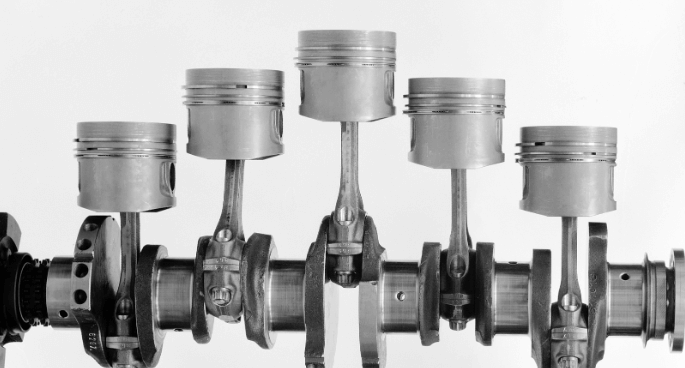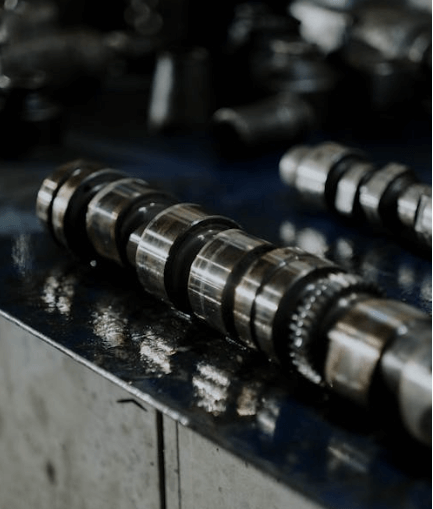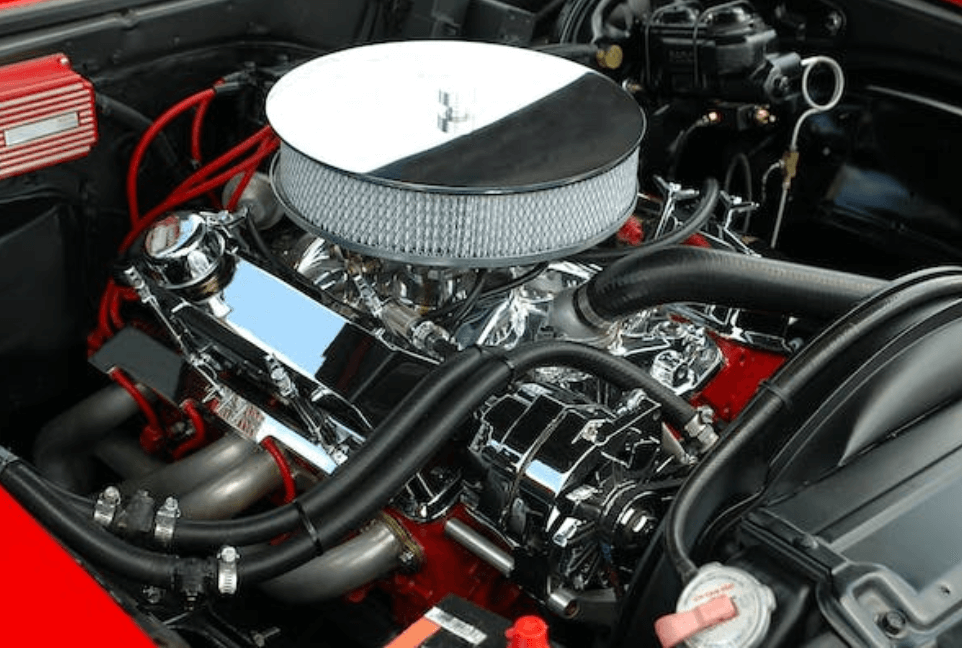If your car’s engine is not performing at its best, you might be asking, “What makes an engine weak?” A weak engine can manifest in various ways, ranging from performance issues leading to poor performance, poor fuel economy, which has drained your wallet, an increase in maintenance costs, and a general loss of power. You are even worried about resale value due to engine problems.
This has frustrated and worried you. Trust me, a weak engine is not a child’s play. It tends to create more problems than you anticipate. Because it will hinder your movement and cost you a lot of money. But worry no more as this article has spelled out all the possible causes of weak engines and the ways to prevent and deal with them.
In this post, I will iron out things that make an engine weak and reduce its performance level. I will also discuss the causes of engine internal damage. If you find this interesting enough to learn more about, follow me as I get right into it.
What makes an engine weak?
Engines become weak due to issues like a faulty fuel pump, carbon buildup from low-quality fuel, a clogged air filter, a bad fuel and filter injector, old spark plugs, camshaft position sensor malfunction, and bad ignition coil. These lead to reduced power, fuel economy, and overall poor performance.
Below are the issues that make an engine weak:
1. Faulty Fuel Pump
A faulty fuel pump is one of the key elements that make an engine weak. The responsibility of the fuel pump is to take fuel from the gas tank and transfer it into the engine of the vehicle. Not only that, the fuel pump also ensures that the fuel is delivered at the right pressure so that it can meet the demands of the engine for maximum performance.
When an engine cannot get enough oil for its proper functioning, that means that something has gone wrong with the fuel pump, or it has spoiled and malfunctioned. Your car won’t accelerate, and the performance of the engine would ultimately be jeopardized, leading to a compromised fuel-air mixture and, consequently, a weaker engine.
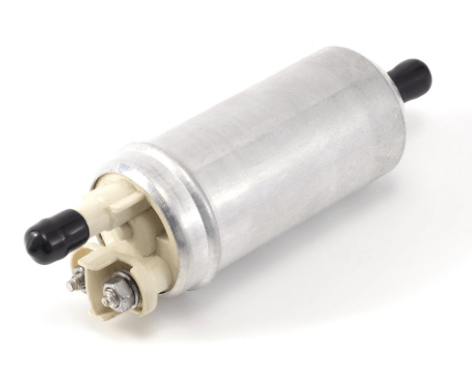
2. Bad ignition coil
The ignition coils of the ignition system serve as an electronic engine responsible for the management element for converting the 12 volts of power generated by the vehicle into twenty thousand volts. This amount of voltage is needed to generate the electrical spark which can ignite the air-fuel mixture of the engine. If the ignition coil were to fail then the vehicle would be unable to accelerate and its power would be lost, which would result in weak engine and poor engine performance.
3. Carbon Buildup Due to Low-Quality Fuel
Low-quality fuel can be detrimental to your engine’s health. It can lead to carbon buildup on critical components, affecting the combustion process. This buildup can impede the smooth operation of the engine, making it struggle to produce power efficiently and, as a result, weaken the engine’s power.
4. Camshaft position sensor malfunction
The vehicle’s camshaft position sensor is responsible for gathering information about the camshaft speed of the vehicle and then sending it to the electronic control module. (ECM) This module is a computer that exists inside the most recent models of cars. Once information about the camshaft speed is sent to the ECM the computer will then manage the timing of both the fuel injection and ignition based on this information. However, if there is a malfunction with the camshaft position sensor and it’s not able to send this information to the ECM then the performance of the engine will be greatly impacted, making the engine weak and likely won’t be able to function properly.
5. Clogged Air Filter
Picture your engine trying to breathe through a straw. That is not an ideal scenario, right? A clogged air filter restricts the airflow into the engine, affecting combustion. The internal combustion chamber of an engine is responsible for mixing gasoline and air to generate the power that is needed to run your vehicle before the air can enter the chamber. It must pass through an air filter that screens out bugs debris and other kinds of impurities that may exist in it. if these impurities were to get into the engine they could cause severe damage.
However, air filters tend to get clogged after they’ve been used for a while. once an air filter gets clogged it will limit the amount of air that can get into the internal combustion chamber, this will negatively impact the functionality of the vehicle because the engine won’t be able to generate a sufficient amount of power to run the car which makes the engine weak. The right solution is to replace your air filter and you should be good as new.
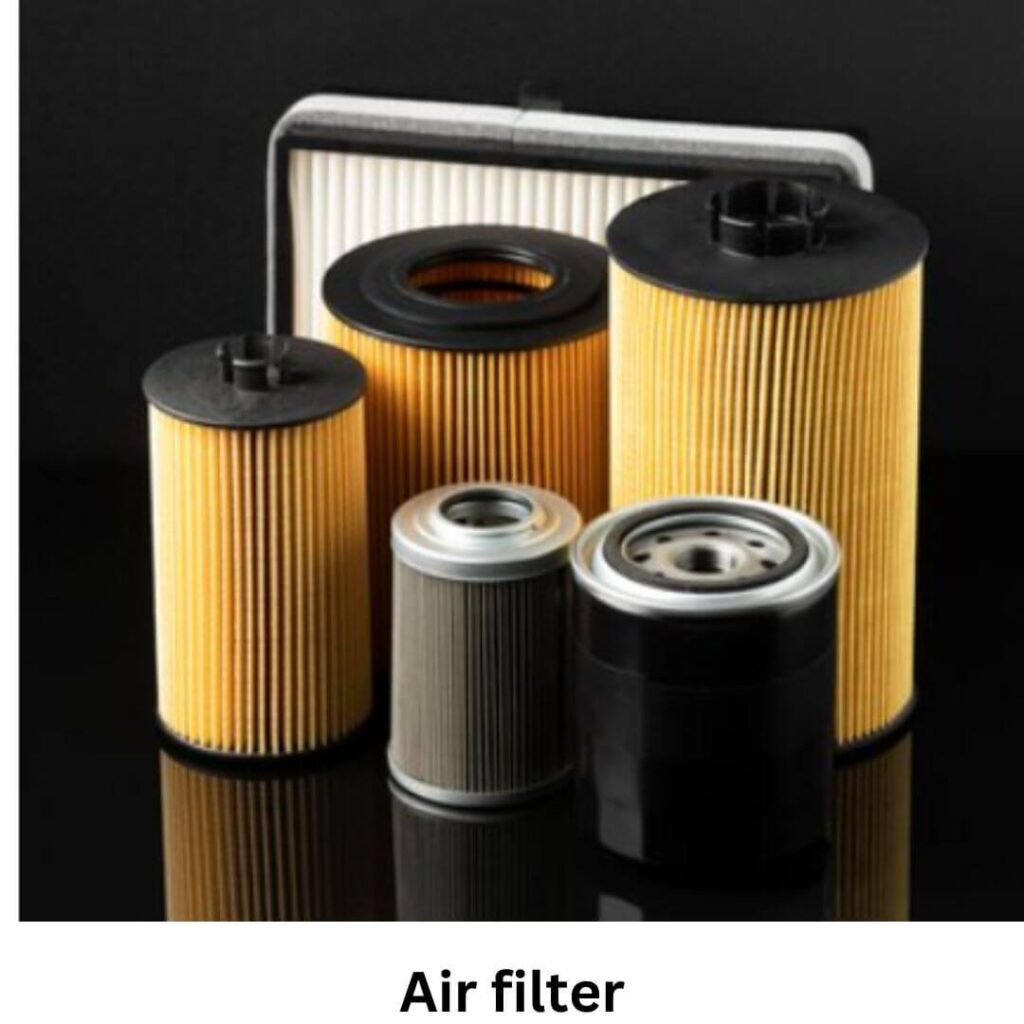
6. Clogged fuel filter
The fuel filter is located in between the fuel injectors and the fuel pump of your vehicle. The job of the fuel filter is to screen the gasoline for any impurities that may exist in it, that way when the fuel pump sends the gasoline into the engine those impurities won’t be there. The fuel filter is a barrier between the contaminants in the gasoline and the engine of your vehicle.
If you were to have a dirty fuel filter or one that couldn’t perform its job properly because it’s damaged or clogged then those contaminants would find their way into the engine and at some point cause expensive damage. once that happens the engine will eventually lose its power and in overall functionality and become weak.
7. Bad fuel injectors
Fuel injectors are an important management component of a vehicle’s engine. They are located within the fuel system of a vehicle and their main job is to spray fuel inside of the engine. The computer of the engine is what controls the fuel injector. the specific time intervals and patterns in which the injector sprays fuel into the engine.
This process makes the engine perform at its best under different driving conditions. Should the fuel injector become damaged or malfunction, the engine would not be able to generate a sufficient amount of power to run the vehicle. Therefore, reduces the performance of the engine and becomes weak, since the fuel injector is a crucial part of the fuel system
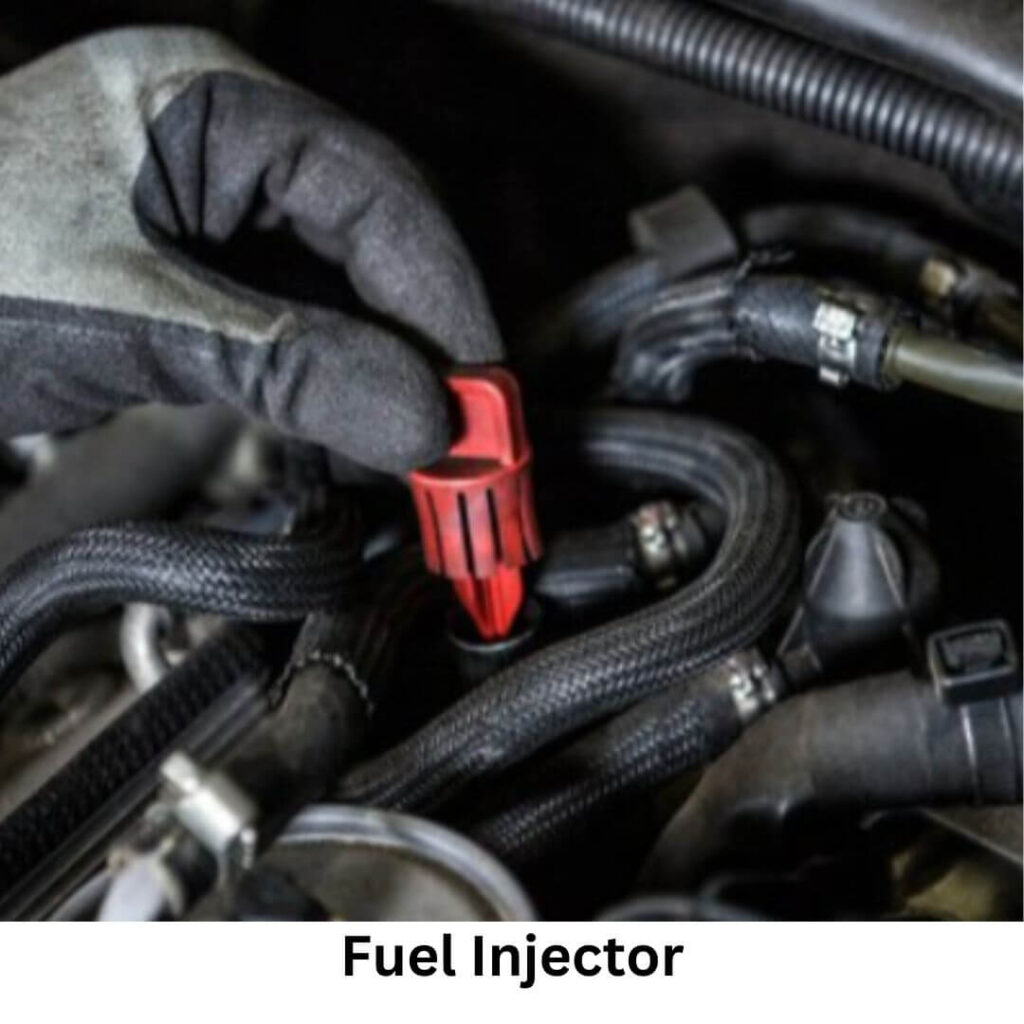
8. Old/bad Spark Plugs and clogs in the system.
Spark plugs are an important component of a vehicle’s internal combustion motor. When the ignition coil sends an electrical signal to the spark plugs they transmit that signal to the combustion chamber so that its air-fuel mixture can be ignited by an electric spark. If the spark plugs are old or there are clogs in the fuel system, it can make the spark plug fail and can cause misfires and reduce the overall engine performance.
Regular maintenance, including spark plug replacement and fuel system cleaning, is crucial to keep these issues at bay. You can do this yourself or employ the services of an expert to prevent engine lock.
9. Clogged exhaust pipe
There are two filters in an exhaust system the muffler and the catalytic converter. The job of the catalyst converter is to cut down the amount of pollution generated from the exhaust gases while the function of the muffler is simply to decrease the amount of noise that is made. If the exhaust pipe or any of its filters were to get clogged it would weaken the functionality of the engine by reducing its power and making the vehicle drive slow when trying to accelerate. A clogged exhaust system is bad on any vehicle but it’s even worse on a turbocharged vehicle.
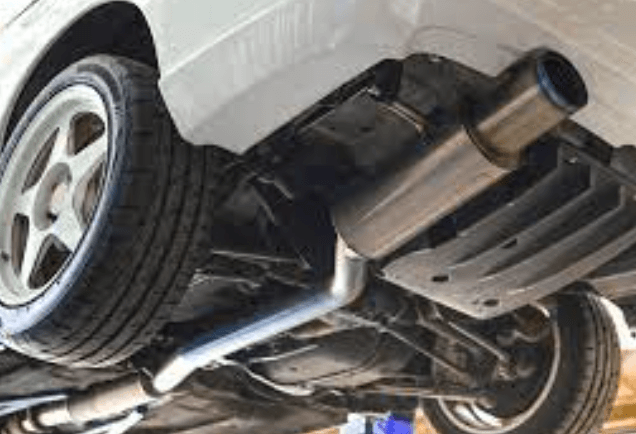
10. Overused or worn Piston Rings
The prison ring controls the amount of oil that passes between the piston and cylinder wall and prevents blow-by in the engine. But when the piston rings wear out or are overused, it will enable blow-by, and allow the combustion of some of the high-pressure air and fuel that blow-by past the pistons to go down the cylinder walls into the crankcase power and be wasted thus causing low performance and make the engine weak. This results in reduced compression because some air escapes when the piston rises during the intake valve, making the oil get contaminated rapidly, when there is blow-by after combustion because the combustion by-products penetrate the crankcase.
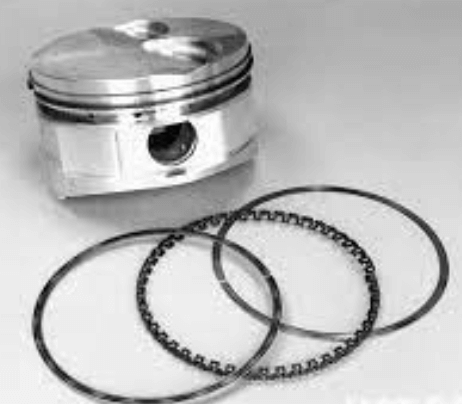
What you must do
Regular maintenance
A weak engine results in poor performance and frustrates day-to-day activities as you can not make your car work optimally. what you need to do is prevention, not a remedy. Regular maintenance of your car is the best way to prevent a weak engine. Regular maintenance includes changing the oil and cleaning the throttle body, changing the bad spark plug, fuel pump, fuel, and air filter, which can correct any sluggishness in power when accelerating. Ensuring the use of quality fuel and prompt addressing of any issues are keys to keeping your engine running smoothly.
You can also read; How can I improve my car’s performance.
What causes internal engine damage?
The car engine is the powerhouse that propels you forward. It performs perfectly well when all the various components work in harmony. However, several factors can lead to engine failure and damage its internal components. They are discussed below:
1. Overheating Engine
Overheating causes severe damage to the internal system of a car engine. When an engine gets too hot, it can wreak havoc on its internal components. Extreme temperatures can lead to warped cylinder heads, damaged pistons, and even a cracked engine block. Regularly glue your eyes to the dashboard to monitor your engine’s temperature while driving to prevent overheating and potential damage.
2. Lack Of Oil
An engine’s lifeblood is its oil. Without proper lubrication, internal components can rub against each other, causing friction and heat. The lack of oil can result in significant damage to the engine. Regularly check and change your oil to ensure that your engine stays well-lubricated and free from unnecessary wear and tear.
3. Detonation
Detonation, also known as engine knocking, occurs when the air-fuel mixture in the combustion chamber ignites spontaneously. This can lead to a rapid rise in pressure that can damage the pistons, cylinder walls, and other internal components. Using the right fuel and maintaining the correct air-fuel ratio can help prevent detonation and subsequent engine damage.
4. Lack of Regular Maintenance
Neglecting regular maintenance is a silent killer for your engine. Skipping oil changes, ignoring the coolant levels, and overlooking other routine checks can lead to a cascade of issues within your engine. Stay proactive with maintenance to ensure your engine’s durability and performance.
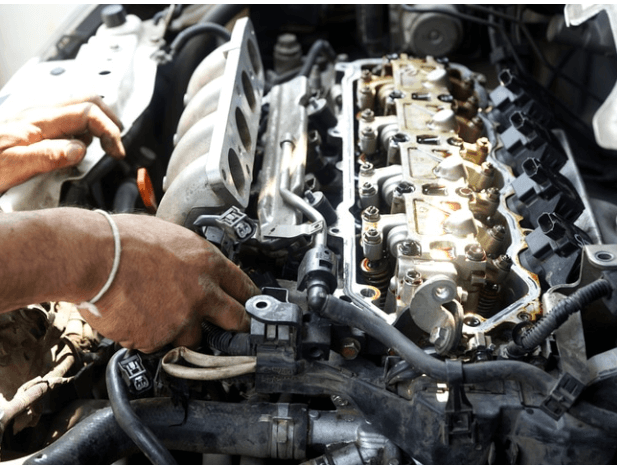
5. Improper Lubrication
Lack of lubrication, whether due to low oil levels or poor-quality oil, can spell disaster for your engine. Proper lubrication is essential to reduce friction between moving parts and prevent wear. Regularly check and change your oil to keep your engine running smoothly.
6. Broken Valve Seals
Broken valve seals allow oil to leak into the combustion chamber during the intake stroke. As a result, the engine burns oil along with the fuel. This increased oil consumption not only leads to poor engine performance and reduced power but also leads to oil leaking into the combustion chamber, which can interfere with the combustion process. The presence of oil in the fuel-air mixture can lead to incomplete combustion, reducing overall engine efficiency and power output.
Remember, the key to resolving power loss when accelerating lies in proactive maintenance and timely fixes. By addressing the root causes, such as clogged components or faulty ignition, you’ll be back to enjoying a smooth and powerful ride.
This blog post has addressed the issues that make your engine weak and the causes of engine internal damage. Feel free to engage with my blog for more on general maintenance of your vehicle and any issues related to the car.
Share your thoughts on any other causes of weak engine and internal damage. Drop your comments, suggestions, and questions in the comment section below.

With Over 7 years of experience dealing with car owners as a car lease agent, I have gained matchless car knowledge to help every car owner know what exactly is wrong with their cars.

